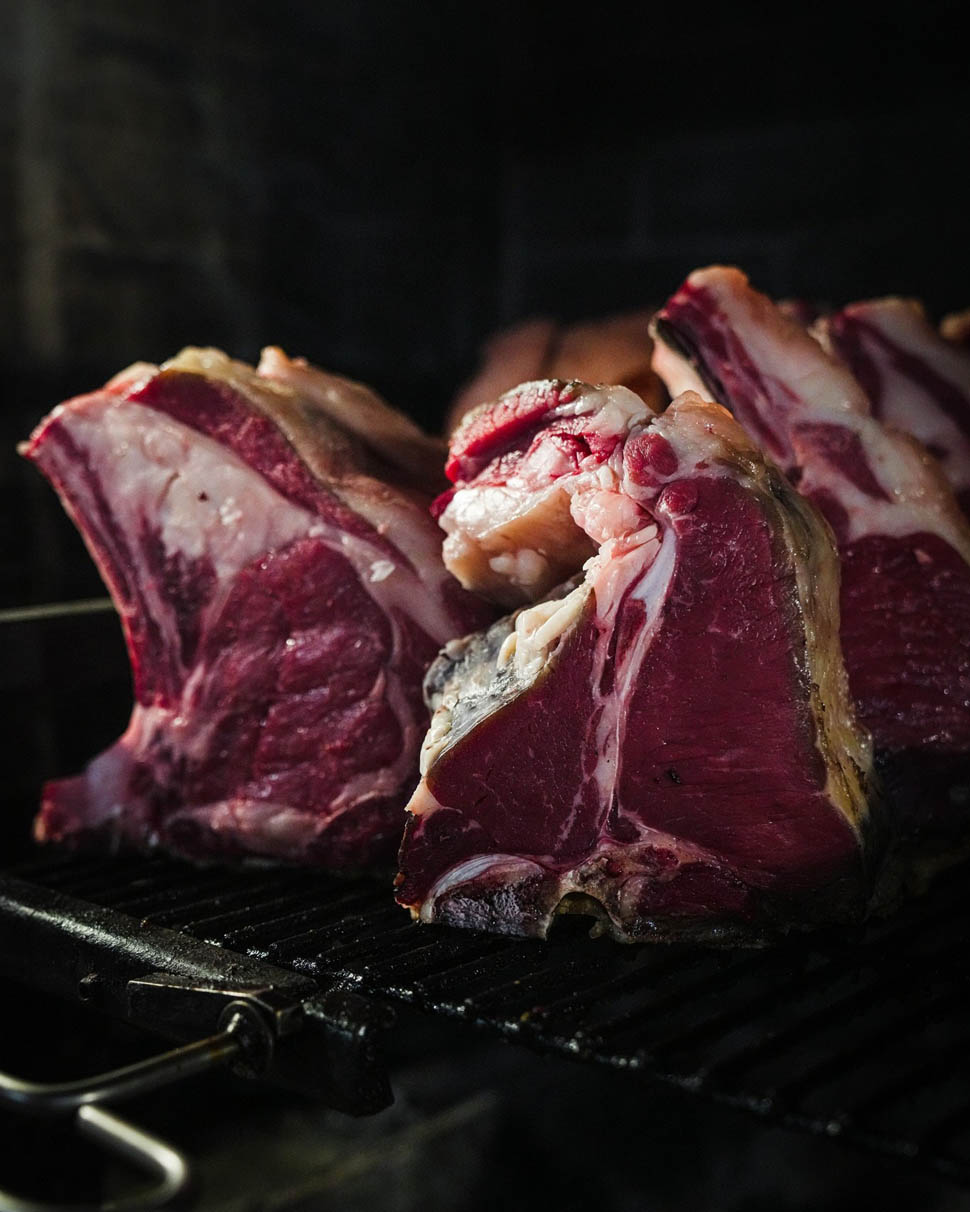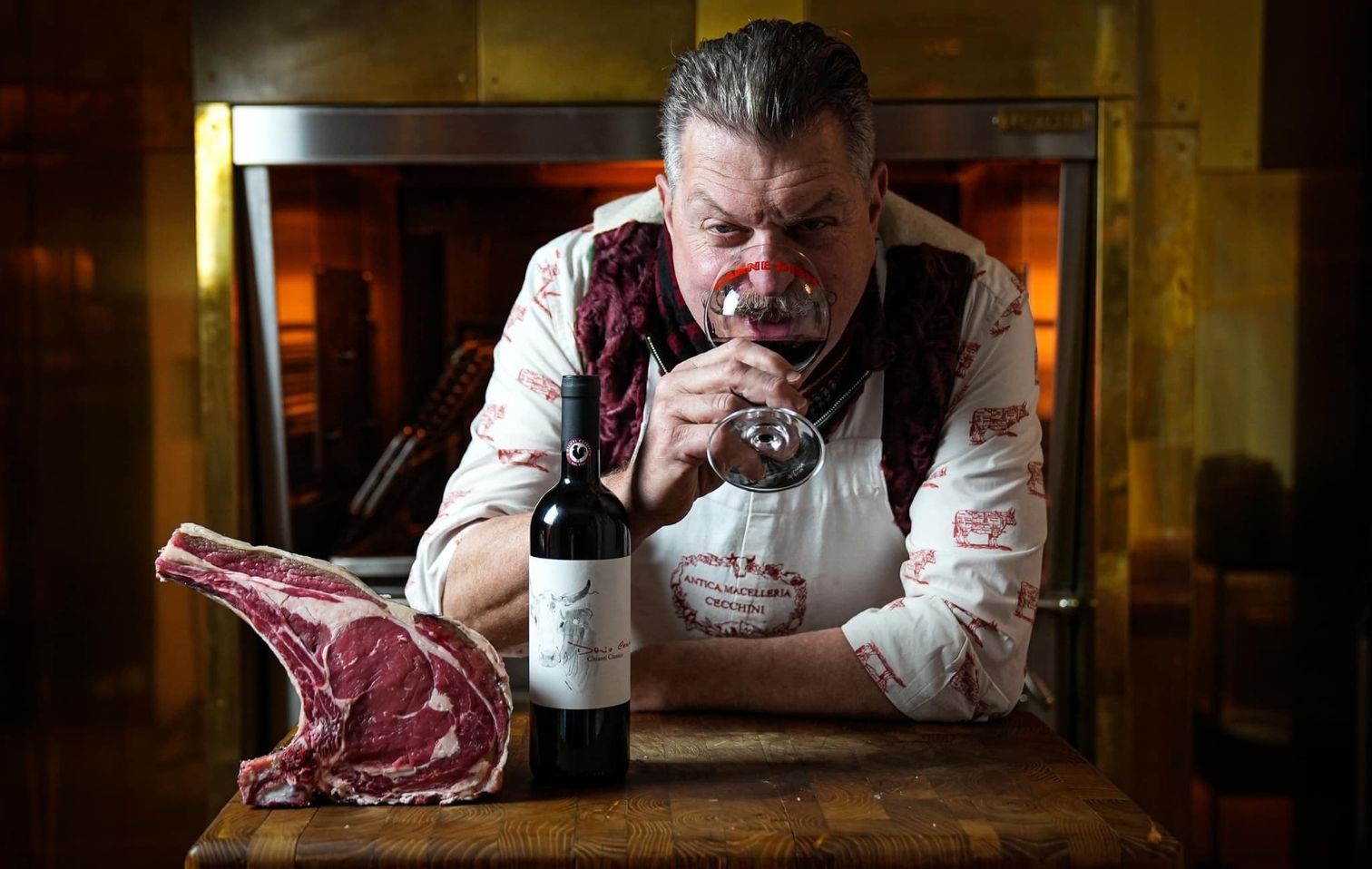"I believe it is my responsibility to ensure that animals have the happiest life possible and a dignified death." Dario Cecchini, a failed veterinarian, shares his vision of butchery on the occasion of the opening of a restaurant in Hong Kong.
The news
Dario Cecchini isn't just famous in Italy. The South China Morning Post dedicates a lengthy interview to the celebrity butcher, calling him "the world's most famous butcher" thanks to his endorsement by Anthony Bourdain and his appearance on Chef’s Table. The occasion is the opening of a new restaurant called Carna, on the thirty-ninth floor of the Mondrian hotel in Hong Kong, following the steakhouse in the Bahamas from 2019, Dubai two years later, and the Bottega di Carna in Singapore in 2023. Cecchini serves as a consultant and regularly visits with his wife Kim Wicks.
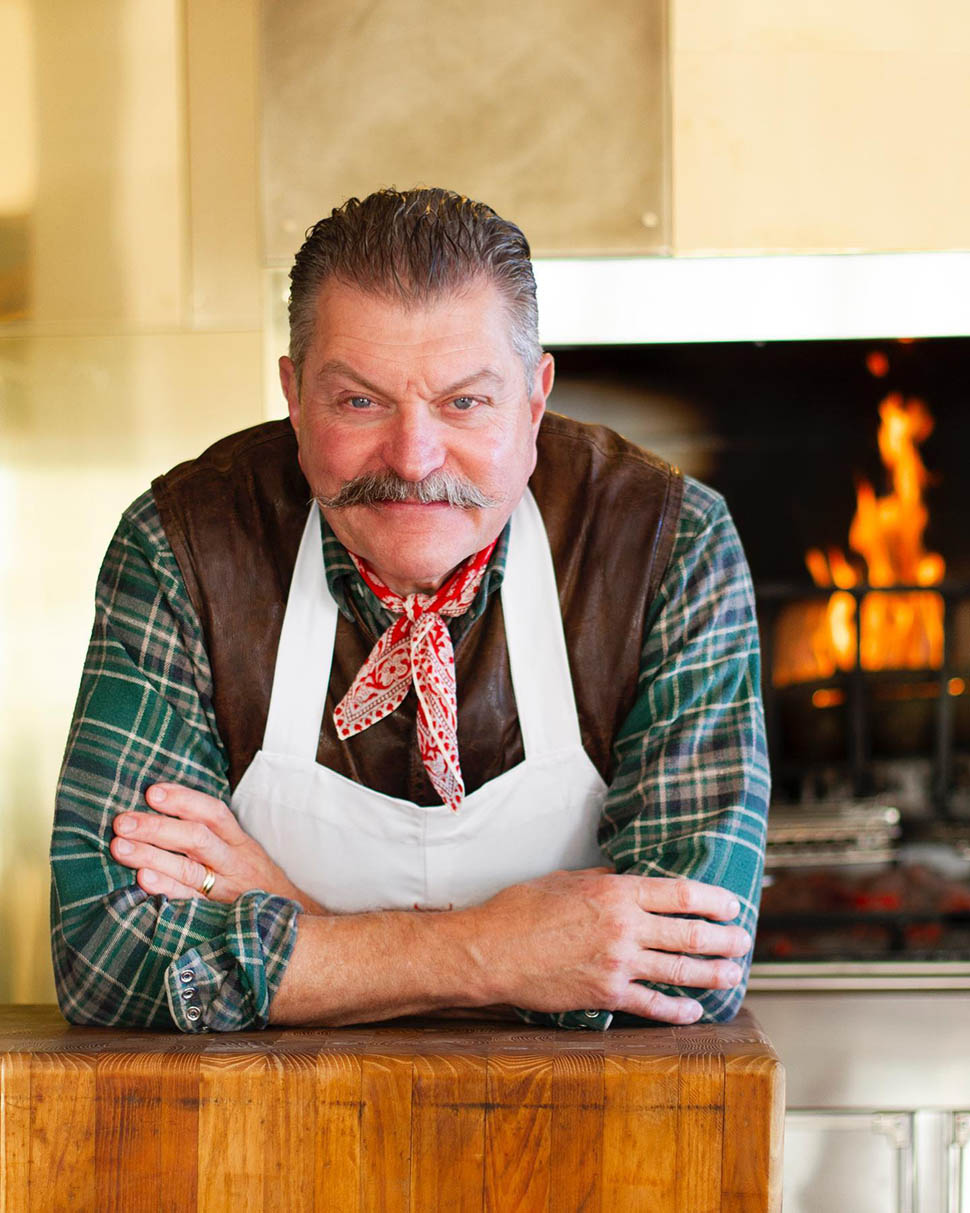
The principle everywhere is to respect the sacrifice of animals: this means that while the star remains the bistecca alla Fiorentina T-bone steak, everything else comes to the table too—tongue, shank, tail, and whatever else, either as appetizers or turned into soups or sausages. "My butcher shop in Italy has been passed down from father to son for 250 years, without changing location. Next year I will celebrate half a century as a butcher. Now I have the task of explaining my craft through cooking.
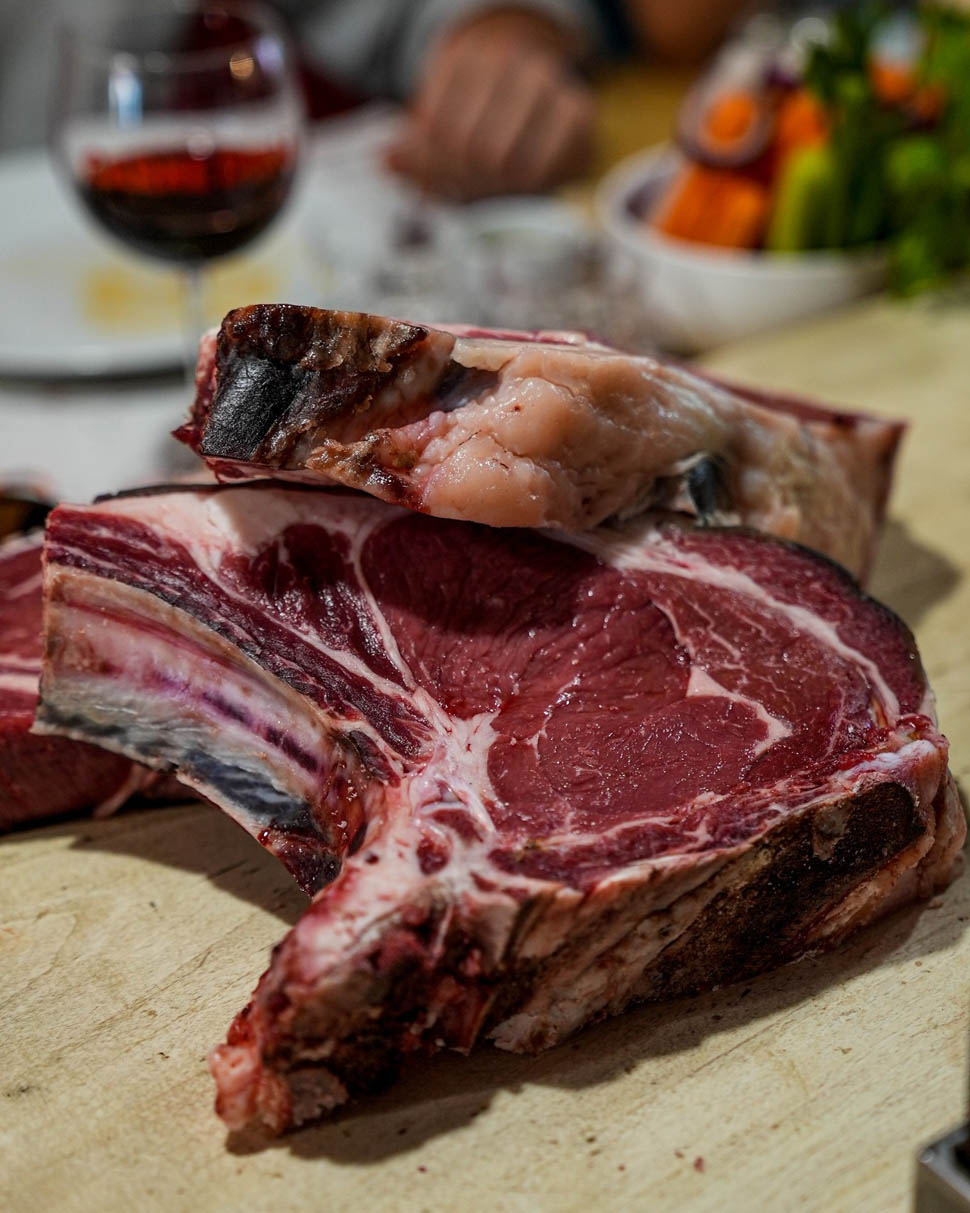
I think this profession carries one of the greatest responsibilities in the food industry. We kill so that the community can feed. People think that the top cuts are the fillet and the Fiorentina steak, but I'm convinced that every cut can be the best in the hands of a skilled chef. By using everything, I'm evolving the concept of a steakhouse into a whole cow house. Eating nose-to-tail means respect and responsibility, honoring the sacrifice. Again, it's death that brings life."
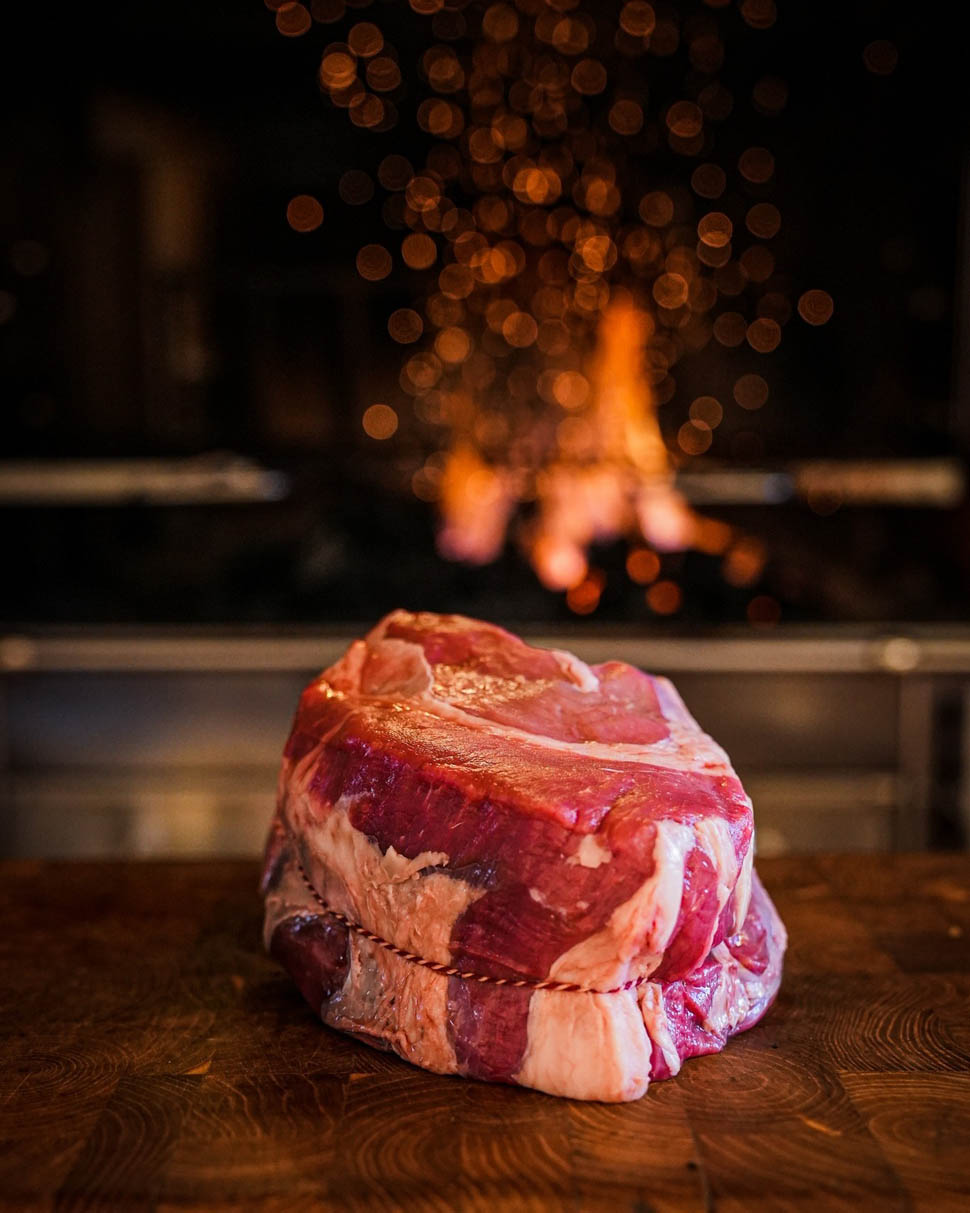
Flying into Hong Kong, Cecchini wanted to visit the open-air butcher shops of the wet markets, where he found authentic artists in action from the early morning, likened to Michelangelo with knives. "I saw people working hard and specializing in doing one thing only, so they could do it in the best way possible. They inspire me. I realize that what unites our two butcher cultures is the use of everything. So for me, it's a great honor to bring my mission here. I feel like I'm paying tribute to a culture of brothers."
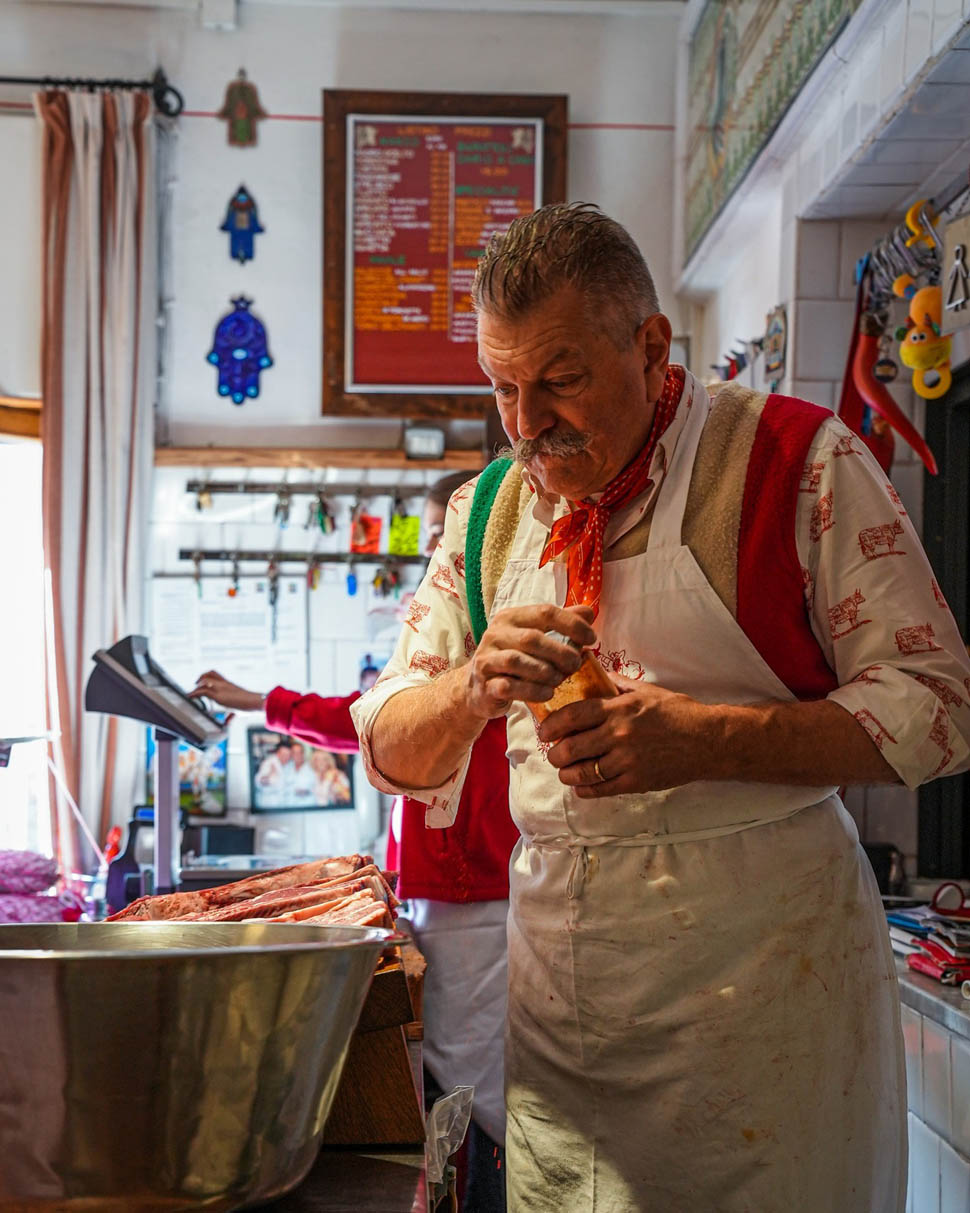
Cecchini's sensitivity has autobiographical roots, as it's true that in his youth he wanted to become a veterinary surgeon and only turned to butchery after the sudden death of his father, who succeeded his mother. He was pursuing university studies when he suddenly had to step behind the counter, with no prior experience. "The first years were very, very tough," he recounts of his hands constantly bandaged due to continuous injuries, which, however, did not discourage him.
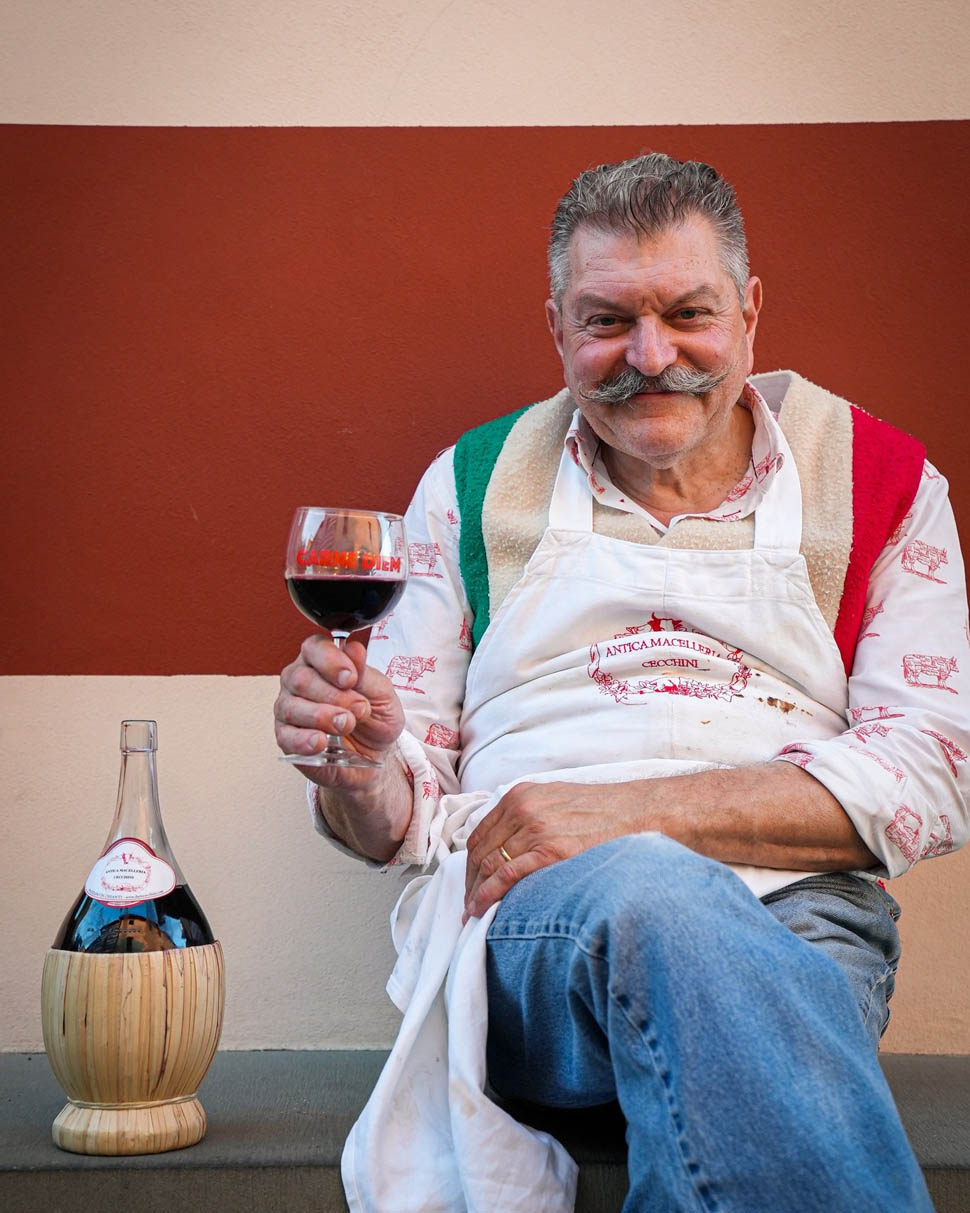
"But my dream didn't die, it just took another path." That's why his herds of Limousin and Aubrac breeds, among others, graze in open and generous spaces in the Spanish Pyrenees. From there will come the material for Carna as well, where it will be interpreted by combining grandmother's recipes and personal insights.
